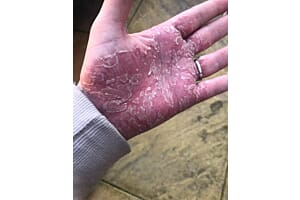A recent survey by the Chartered Society of Physiotherapy reported that a shocking half a million workers suffer from Repetitive Strain Injury (RSI) and that the number of working days lost to the condition is now 4.7 million. The report said that cases of RSI have risen dramatically since 2002 and that it is a growing health concern among workers.
BY Amy Anderson 5 July, 2007
RSI occurs from repeated physical movements doing damage to tendons, nerves, muscles, and other soft body tissues. RSI is usually caused by a mixture of bad ergonomics, poor posture, stress, and repetitive motion of one task. When an action that is stressful to a joint is repeated frequently the area does not have time to recover and it becomes irritated. This can cause the joint to become painful and swollen leading to inflammation.
RSI covers more than 20 muscular disorders of the neck, upper limbs, elbows and shoulders and can trigger tingling pain, numbness and restricted movement. On a long-term basis it may contribute to the development of arthritis. However unlike arthritis, RSI can be cured and so preventative measures are crucial in managing the first signs of RSI before they develop into something more long-term and permenant.
RSI – How to guard against it
1) Poor typing skills are one of the single largest causes of RSI. While you are actually typing your wrists should not rest on anything, and should not be bent up, down, or to the side. Your arms should move your hands around instead of resting your wrists and stretching to hit keys with the fingers. (palm rests give you a place to rest your hands only when pausing from typing, NOT while you are typing.) When you stop typing for a while, rest your hands in your lap and/or on their sides instead of leaving them on the keyboard.
2) Increase your font sizes. Even with ever-larger monitors, many people favour tiny little fonts on their desktops and applications which encourage you to hunch forward towards the monitor to read things. This puts pressure on nerves and blood vessels in the neck and shoulders and can lead to RSI injuries of the neck and shoulder.
3) Use a natural anti-inflammatory such as Boswellia and Commiphora cream at the first sign of any discomfort or pain. In combination Boswellia and Commiphora have been found in two recent UK trials to be as successful as conventional painkillers in reducing pain and inflammation associated with inflammatory conditions such as RSI. In addition there have been over 20 published scientific studies carried out in India and China on these two ingredients in the last 15 years for the treatment of joint inflammation. Boswellia and Commiphora cream costs £9.95 (100ml) for a two-month supply and is available from Skin Shop. Visit www.skinshop.co.uk
4) Keep your arms & hands warm. Cold muscles & tendons are at much greater risk for overuse injuries, and many offices are over-air-conditioned.
5) Do not tuck the telephone between your shoulder and ear so that you can talk on the phone and use your hands at the same time. This common mistake is very aggravating for your neck, shoulders, and arms.







